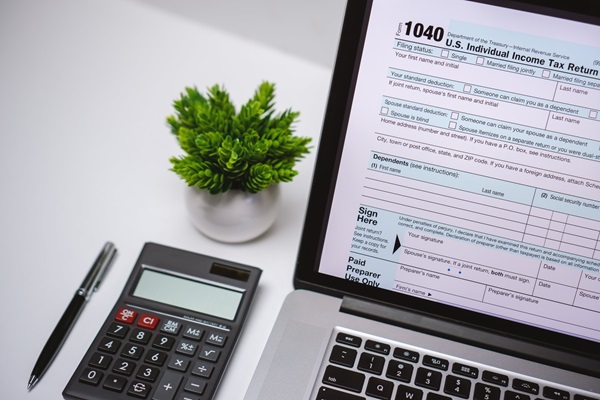10 Tips for PCS-ing to Germany

Living in Germany is an exciting opportunity for those fortunate enough to receive a duty assignment in the region. Not only does it serve as an excellent base for exploring other European countries, there are many positives to living and working in Germany. To make the most of your time there, follow these tips for handling finances and other everyday necessities.
1. Firstly, don’t misplace your VAT forms.
As part of the U.S. military community under the Status of Forces agreement, you are eligible to use VAT (value-added tax) forms that exempt you from value-added tax on local purchases. Each form costs $10 (as of October 1, 2022), and you can have up to 10 forms at a time. Losing them can be problematic, as you cannot be issued replacements for a lost form unless you fill out a Lost Memorandum Form. Each time you fill out a Lost Memorandum Form, you will receive a “strike,” and after three strikes, you will no longer be permitted to receive VAT forms for tax-free purchases.
2. Be prepared. Have some cash.
It’s wise to keep some cash on-hand, even though card payments are widely accepted. Especially when dealing with smaller businesses like salons or spas, inquire about their card policies when making appointments, as many prefer cash payments.
You can also consider getting a V Pay card, which is like a debit card but tailored for European use. It serves as an excellent solution when traditional credit or debit cards face limitations and aren’t accepted at “mom and pop shop” type merchants. You can easily order a V Pay card for your Service Credit Union checking account online or at a branch in Germany. One of its major advantages is the absence of foreign transaction fees, offering peace of mind for your European shopping adventures.
3. Think beyond the car.
Public transportation and walking are highly favored by Germans. Most cities and towns are easily walkable, and larger cities often have pedestrian only zones (Fussgängerzone) with shops, restaurants, and groceries. When traveling longer distances, consider utilizing the efficient train systems in Europe. Tickets for trains can be easily purchased ahead of time online or via mobile app. DB Navigator is a useful app for planning and purchasing trips on the Deutsche Bahn. You can also purchase ICE train tickets, which is Deutsche Bahn’s high-speed rail service. Major cities will likely have their own apps for local bus and tram routes. If you’re traveling to a new city, consider downloading the local transportation app so you can navigate local trains, street cars, and buses with ease.
If you are buying a car, make sure to check out this helpful guide!
4. Adapt to differences.
Everything will be in German, temperatures are measured in Celsius, and the metric system is the standard. Grocery stores offer a variety of brands and products that might be unfamiliar to you. While English is commonly spoken, picking up some basic German phrases can enhance your overall experience. Utilizing online translation and conversion apps can be helpful on the go.
Dining in restaurants is a unique experience where you can take your time at the table without feeling rushed. Service can be much slower, especially in family-owned establishments, and it is normal to spend several hours at a restaurant. Even driving is different – passing is only permitted in the left lane, and you must promptly return to the right lane after overtaking. The rumors about no speed limits on the German autobahn are partly true. Although some stretches have no set speed limit, caution is advised and 130 kilometers (about 80.78 mi) per hour is the recommended maximum. Pay close attention to any posted speed limits, as they are often enforced with speed cameras, particularly near construction sites and interchanges. Additionally driving at excessive speeds may increase your liability in case of a collision, and some insurers may not cover damages resulting from such incidents.
5. Tipping Etiquette
When it comes to tipping, rounding up 5-10% is the norm. Inform the server of the total amount you want charged, including the tip, especially when paying in cash. Tipping 15-20% is not expected, but a modest tip is customary, especially in sit-down restaurants. When at a salon or similar service, tipping 20% is also not the norm as it is in the states. If you’re happy with the service, a 5-10% tip is acceptable.
6. Waste Separation
Segregate your garbage into four categories: bio/food waste, Gelbe Sack (yellow bag) for plastic, metal, or composite materials, papier müll for paper or cardboard, and glass, which requires further separation by color. Glass must be disposed of at a designated glass waste receptacle in your neighborhood and separated by clear, green, and brown glass. They take waste separation seriously in Germany, and if your waste isn’t properly separated, you run the risk of it not being picked up or receiving a fine.
7. Quiet Hours and Sunday Closures
Germany observes quiet hours from 10:00 p.m. to 6:00 a.m. daily, and all day on Sundays and public holidays. During quiet hours you cannot make any noise above 50 decibels. This means no loud music, mowing the lawn, power tools, or other loud activities. Additionally, Sundays and German public holidays are treated as family/rest days, therefore, most places are closed on those days, except for essential services. Not to worry, if you need to get your Sunday shopping in, U.S. military base shops follow U.S. norms for operating hours.
8. Adapt to Euros
Adjusting to using and transacting in euros may take some getting used to, as the USD to EUR conversion is not 1:1. The exchange rate also changes daily. This can make budgeting a little more challenging when trying to reconcile how much will debit your USD bank account when shopping and transacting on the German economy. A great way to mitigate an overage is to add a buffer to your estimates. If the actual debit ends up being lower than your estimate, stash the extra money in a special savings account. This account can act as a safety net, protecting you from unexpected drops in exchange rates.
If you’d like to stay updated on the value of your money in Europe, make sure to sign up for our daily Euro Rate newsletter. Check out more financial hacks for living in Germany here.
9. Managing Payments in Germany
When it comes to paying bills in Germany, whether it’s rent, utilities, cell phones, or fines such as speeding or parking tickets, the process may differ from what you’re accustomed to. Germany is a part of the Single Euro Payments Area (SEPA), facilitating the seamless electronic transfer of euros between individuals and businesses across the European Union.
If you’re a Service Credit Union member, you can pay your bill in euros with our International Bill Pay option. You can also pay your euro bills at any Service CU brainnch Germany. If the entity you owe prefers to debit your account directly in euros, provide them with your International Bank Account Number (IBAN). If you have a Service CU Checking Account, you’re in luck – you already possess an IBAN.
10. Seek Community
Embrace the newness of your duty station by using social media to connect with clubs and make friends both within and beyond the U.S. military community. Explore various activities and make the most of your time in Europe by traveling whenever possible. Regardless of your budget, there are countless beautiful experiences waiting to enrich your time while stationed in Germany. Make the most of this unique chapter in your life by meeting new people and immersing yourself in the vibrant culture and adventures that Germany and Europe have to offer.




